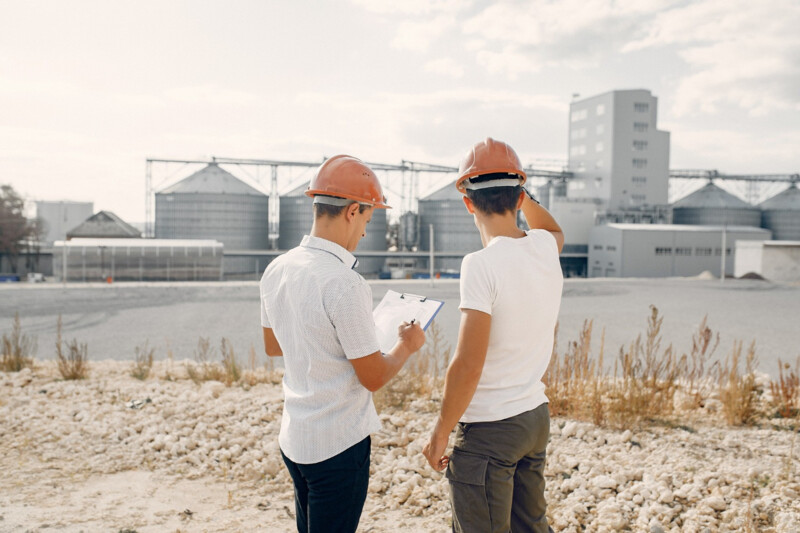Alors que la crise de la construction de logements perdure, les professionnels du BTP peuvent compter sur la réindustrialisation et la multiplication des infrastructures logistiques. Considéré comme un segment dynamique avant le Covid, le secteur de l’industrie s’est encore développé depuis la pandémie.
Logements neufs : une crise historique
Défaillances des entreprises, chute des ventes dans l’individuel, baisse des permis de construire… Le logement neuf sombre dans une crise sévère, similaire au sortir de la crise financière de 2008-2009, estime la Fédération française du bâtiment (FFB).
📰 Édito #BâtimentActualité n°16 - Le #bâtiment entre en crise.
— FFB (@FFBatiment) September 25, 2023
🏠 Les chiffres parlent d'eux-mêmes : le #logement neuf est en difficulté. Découvrez dans cet édito pourquoi la FFB sonne l'alarme et quelles mesures sont nécessaires pour un rebond rapide ⤵️https://t.co/sNcDgELj1W pic.twitter.com/CxVW5t1dOt
« À l'horizon 2025, si rien n'est fait, donc si l'on laisse la crise du neuf s'enclencher, l'activité bâtiment reculera d'environ 8 % hors effet de prix, soit 14 milliards d'euros en moins. S'en suivra une réelle montée des défaillances et une chute de l'emploi, avec près de 150.000 destructions de postes », a déclaré Olivier Salleron, son président, lors d'une conférence de presse.
Alors qu’elle tablait sur 100 000 destructions d’emplois d’ici 2025, la FFB avait déjà revu ses prévisions à la hausse début juillet. Le scénario qu’elle envisage aujourd’hui est encore plus critique.
Parmi les pistes avancées par la Fédération pour limiter les conséquences et la durée de la crise dans le BTP figurent :
- la demande d’assouplissement des règles fixées par le HCSF (Haut Conseil de stabilité financière),
- la mise en place d’un crédit d’impôt sur les intérêts d’emprunt,
- et la création d’un dossier unique de demande pour les CEE (certificats d’économie d’énergie).
Le marché du bâtiment soutenu par l’industrie
Dans sa dernière note de conjoncture, la FFB relève une hausse de 4,2 % des surfaces autorisées sur 7 mois à fin juillet au titre des bâtiments industriels et assimilés. Représentant 41 % de la construction non résidentielle en 2022, il s’agit du segment de marché le plus dynamique.
Interrogé par le journal Les Echos, Alin Tayar, directeur général de la branche bâtiment du groupe BTP NGE, considère le marché du bâtiment industriel comme « un relais de croissance pour les années à venir ».
L'industrie était « un segment dynamique avant le Covid, qui s'est encore développé et accéléré depuis la pandémie », confirme Patrick Zulian, vice-président de Spie batignolles.
Les professionnels du bâtiment estiment que cette dynamique concerne surtout quatre secteurs de :
- la pharmacie,
- l’énergie,
- l’environnement,
- et les projets de méga-usines de fabrication de batteries pour les véhicules électriques.
Une tendance confirmée par la dernière enquête sur l’emploi et l’investissement dans l’industrie en France réalisée par l’éditeur de données économiques Trendeo selon laquelle huit projets industriels d’au moins 250 millions d’euros ont été annoncés au premier semestre 2023, contre seulement deux au premier semestre 2009. Par exemple, dans l’environnement, la Métropole Nice Côte d’Azur a lancé la construction d’une nouvelle station d’épuration, une opération qui se chiffre à 700 millions d’euros hors taxe.
⚡ A lire dans @LesEchos l'article "Le dynamisme des chantiers d'#usines soutient l'activité du #bâtiment"👇 #industrie #btp #Trendeo
— Trendeo (@Trendeo) September 22, 2023
👉https://t.co/yAWEHuY2GD
